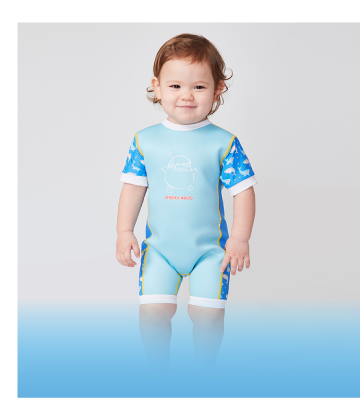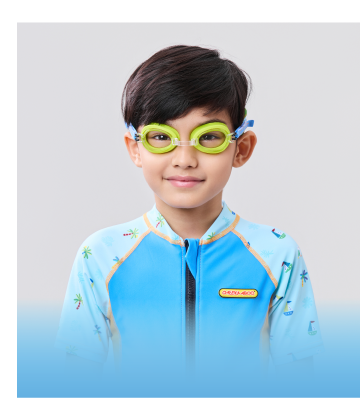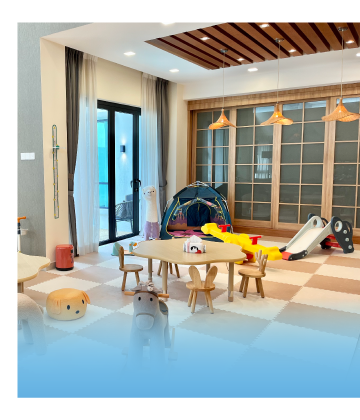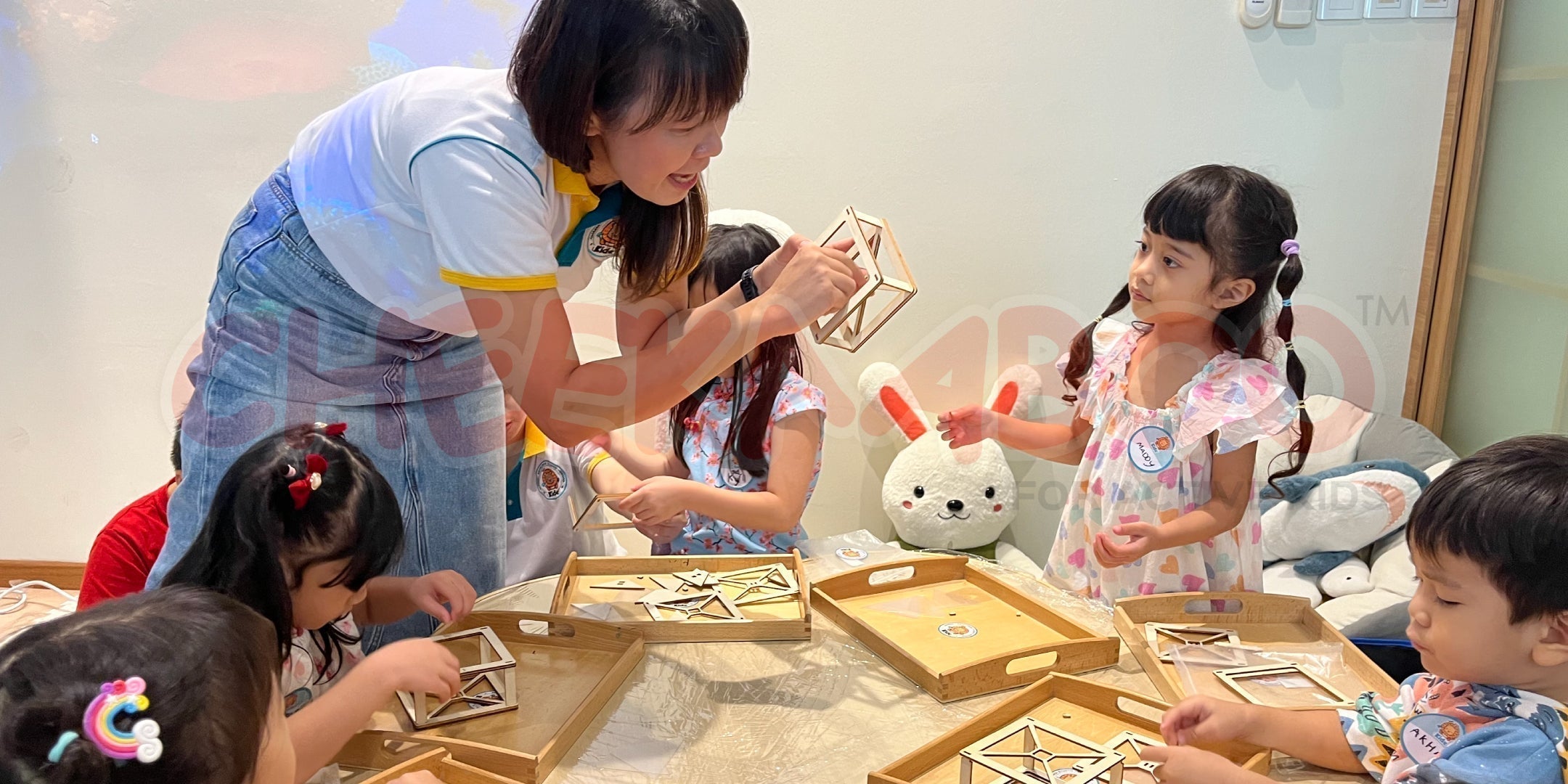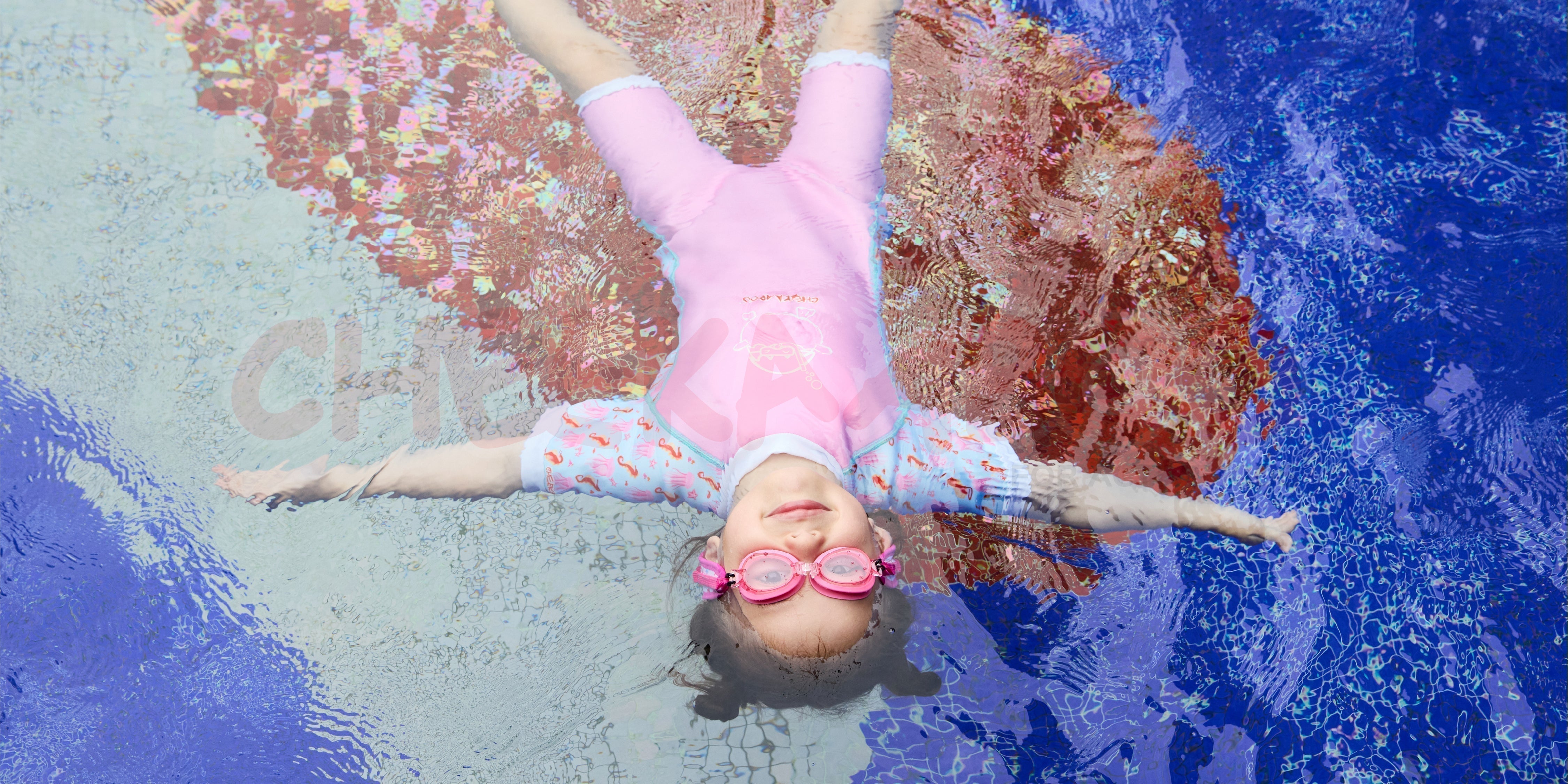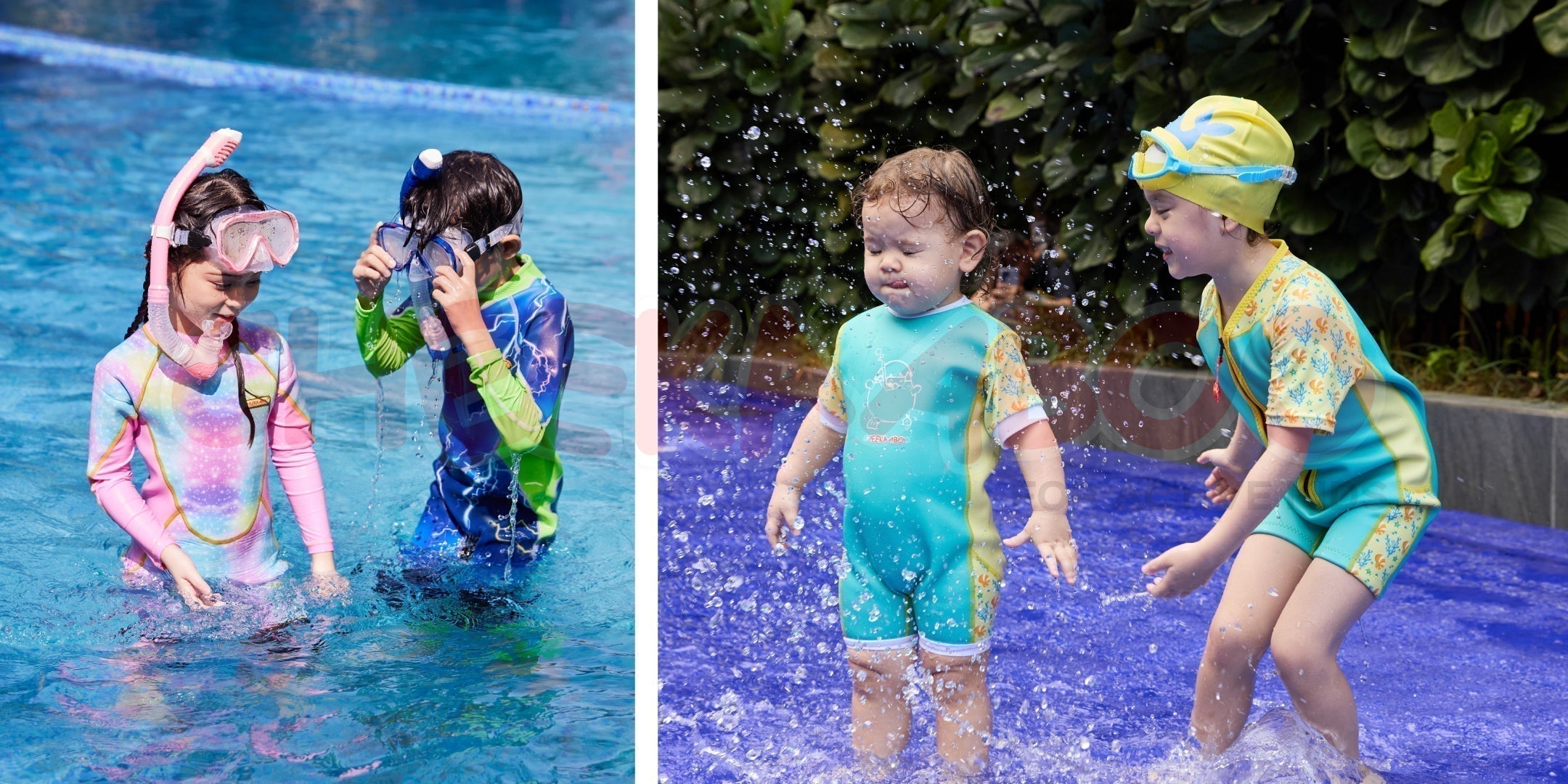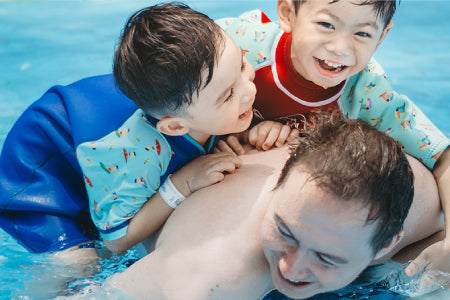
It's not unusual for children to throw a tantrum or resist before a swim session. But while it's a common behavior, does that make it normal? Or could it be a sign that your child is feeling anxious or scared of water?
While babies are born with natural reflexes that help them move in water, these fade over time, and if not replaced with positive experiences, fear can take root.
This guide will walk you through overcoming the fear of water and help your child build confidence while staying safe.
Understanding Infant Reflexes and Overcoming Fear
Actually, babies are born with a natural affinity for water. After spending nine months in the womb filled with fluid, they are born with natural reflexes, the bradycardic response. That makes them hold their breath and open their eyes when submerged in the water.
However, it doesn't mean that toddlers can swim. While they may look like they’re swimming, they can’t control their breath underwater intentionally or keep their heads above water. Therefore, it is crucial to be hands-on with water, especially when babies can't express themselves in words.
As toddlers grow older, their newborn reflexes diminish. Some of them even develop a fear of water due to past traumatic incidents, such as slipping or near-drowning experiences. Therefore, it's important to expose your baby to waterplay at an early age, with constant supervision and guidance from parents!
Why Some Children Are Scared of Water
While some babies naturally enjoy splashing around, others become scared of water as they grow. This fear may stem from:
-
A past frightening experience, like slipping or swallowing water
-
Seeing others panic or struggle in water
-
Simply feeling out of control in an unfamiliar environment
Understanding the cause is the first step in learning how to overcome the fear of water effectively.
How to Help Them Overcome It
1. Talk to Your Child About Why They’re Scared of Water
Communication is key. Sit down with your child and approach them gently, and ask some questions:
-
What makes you feel scared in the water?
-
Do you remember a moment that made you uncomfortable?
Avoid dismissing their fear. Most importantly, don't force them or yell at them when they are scared! Listening is one of the most important steps in teaching how to overcome the fear of water.
2. Use the Right Gear to Ease the Fear
Having the right swimming gear can make a huge difference for a child who’s scared of water. Consider essentials such as:
-
Life jackets
These swim essentials help children stay afloat in water. Therefore, they will feel more relaxed and comfortable in the water as they know there is something to support them.
While swim gear is essential and can be helpful, it may sometimes lead to resistance or tantrums. To learn how to turn swim gear drama into a fun swimming experience, check out this helpful blog: Turning Swim Gear Drama Into a Fun Swimming Experience.
3. Be in the Water With Them
Children who are fearful of water lack the confidence to stay underwater. They need encouragement and companionship to overcome their fears.
Moreover, leaving your little ones unattended in the water poses the risk of drowning or swallowing a large amount of pool water. So, stay close to them in the water because your presence can offer:
-
A sense of security.
-
Comfort through physical touch.
-
A role model to observe and mimic.
4. Seek Professional Guidance
Despite your best efforts, if your little ones are still scared of water, it might be time to involve a professional. Let the professionals lead the way.
Certified swim instructors:
-
Specializing in helping anxious kids.
-
Know how to overcome the fear of water through playful and safe techniques.
-
Can offer personalized tips for your child.
Sometimes, a new face and a fresh approach make all the difference in building their water confidence!
Consistency and Patience Are Key to Helping a Child Scared of Water
When your child is scared of water, your support makes all the difference. By being patient, staying engaged, and using the right strategies, you'll help them gradually build comfort and confidence. Remember, learning how to overcome the fear of water is a journey you’re walking with your child.



